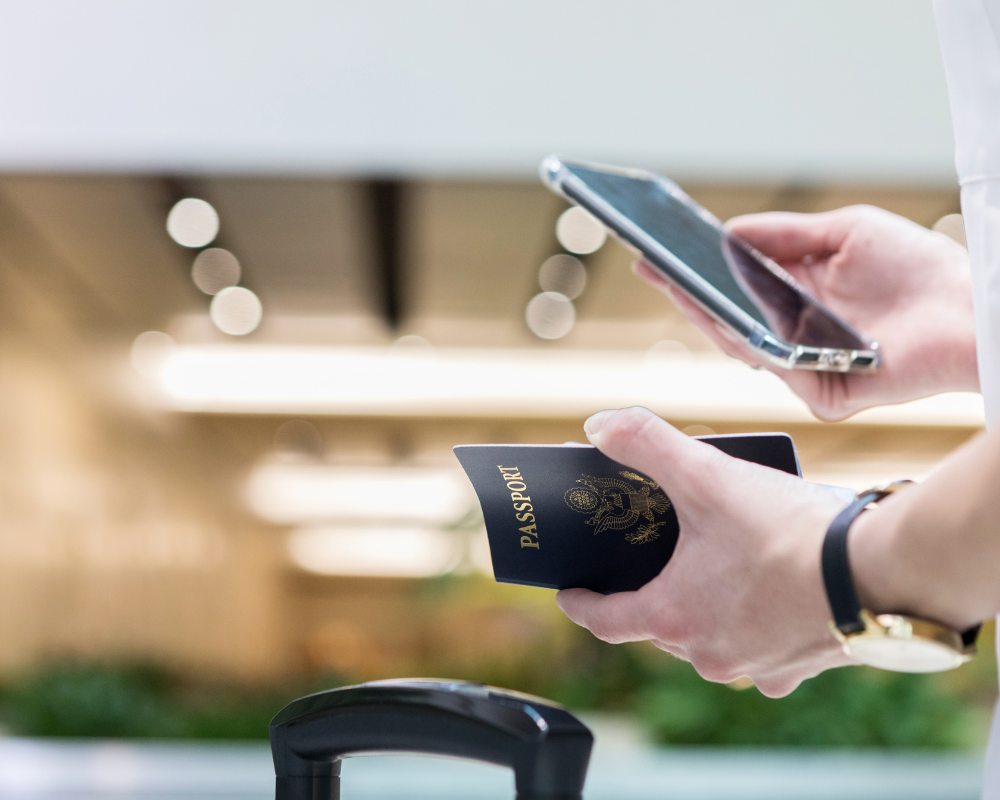- Who We Are
- What We Do
- Success Stories
- Careers
- News & Events
- Contact us
COVID-19 has undoubtedly wrecked millions of lives and thousands of businesses. It has created the need for travel restrictions and social distancing, requiring travellers to undergo lengthy procedures to ensure they aren’t carrying the virus with them. Fortunately, it may look like an end to the virus is in sight, as many vaccines are now being distributed. It has also birthed a new digital passport, which allows international travellers to cross borders without undergoing quarantine.

With this novel technology, airline and border staff will instantly receive a passenger’s COVID-19 test result through a QR code, effectively creating a digital pass demonstrating their health status and proving that they are COVID-19 free.
The New Passport’s Launch
This new passport is now being trialled on Cathay Pacific and United Airlines, two major airlines that cover some of the most popular routes throughout Europe and Asian. The trial will last three months and assess its effectiveness after.
The programme is also piloted on flights between Hong Kong and Singapore, which will then be trialled on flights between London and New York shortly after that. Fortunately, those transiting through Heathrow Airport will also be the first to test the new technology, which is a result of the UK Government’s efforts to reduce the mandatory two-week quarantine.
How the Passport Works
The passport, named CommonPass, creates a digital version on a passenger’s smartphone, containing their coronavirus test results. It was explicitly designed to meet most of the travel restrictions around the world, making it easier for COVID-free international travellers to fly around.
However, for passengers to use the passport, they must take a COVID-19 test. If they test negative, they will receive a QR code, which airline staff and border officials will scan and interpret as proof that they are not carriers of the illness. It also stores health data that any country requires, including vaccinations.
Rationale Behind CommonPass
The mastermind behind CommonPass is the non-profit trust The Commons Project, which hopes to develop a standardised system for international travellers while reducing the required quarantine period. With this new system, it stores health records all in one place that’s easy to access and screen from a recognised and reliable source.
If the passport’s trials succeed, then passengers will enjoy a reduced waiting time in quarantine while abiding by the regulations of the countries they will be visiting. It’s a step towards restoring global travel to pre-pandemic levels, helping the airline and tourism industry recover. It also means that individual businesses can carry on with their work on a pre-COVID-19 scale, helping them improve profits.
However, this passport requires confidence, as countries must trust that the passenger’s record of a COVID-19 test or vaccination in another country is valid. Without this trust, governments will continue to uphold full travel bans and mandatory quarantines for the rest of the pandemic.
CommonPass’s developers have highlighted the technology’s adherence to privacy principles, as it’s equipped with features to protect personal data and comply with regulations like GDPR. In the meantime, The Commons Project will continue to deliver software support for the passport.
Conclusion
This digital passport is an innovation much welcomed by international travellers all over, as it helps restore mobility to pre-pandemic levels in a safe and regulated way. However, given its recent introduction, it may be a few more months before CommonPass is widely recognised and accepted throughout the globe. Informatics is a company specialising in IT consulting services, infrastructure solutions, and custom software development. With over 37 years of experience in the industry, we have been a vital contributor to the sustainable development and growth of various organisations. Contact us today to find out what we can do for you!
Written by Daniele Paoletti
